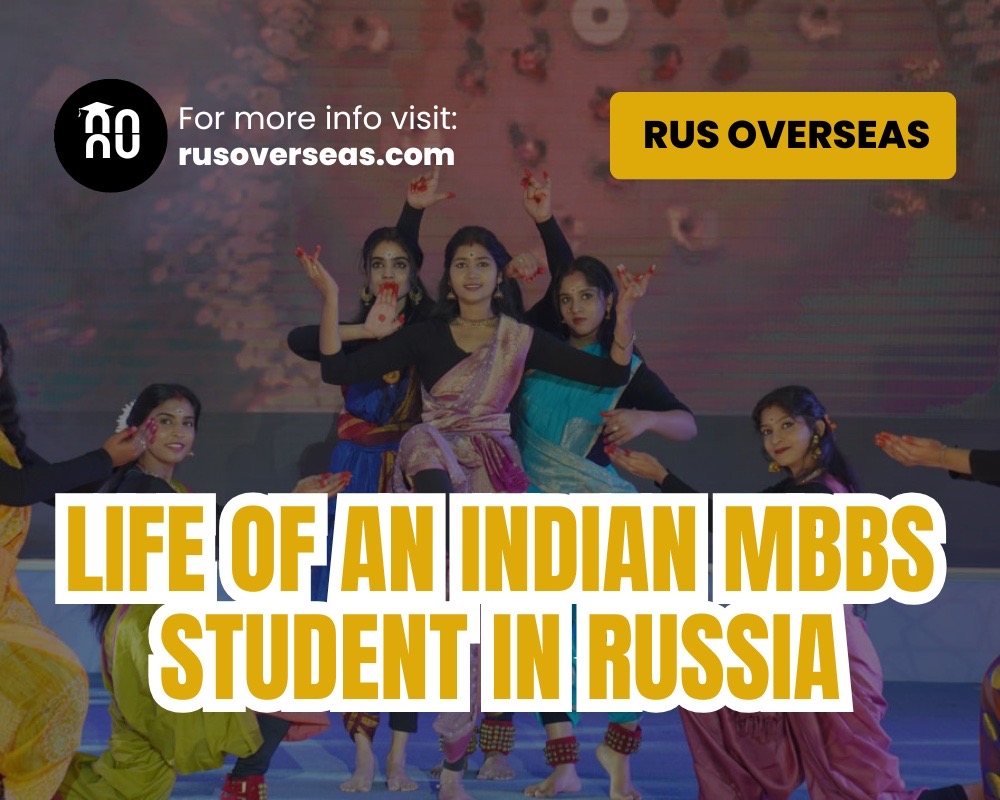Life of an Indian MBBS Student in Russia.

Alright, imagine this: you're in Russia, pursuing your dream of being a doctor. Sounds amazing, right? But come on, it's not all glamorous textbook pictures and motivational speeches. It's a grind. A Russian grind. I'm talking early morning wake-ups, grueling lectures, and a whole lot of adapting to a new way of life. So, let's lift the curtain and take a look at what a typical day REALLY is like for a medical student in Russia.
Sunrise (…or Before Sunrise) and the Human Body Bonanza:
Your alarm clock rings way too early. Like, "did the sun even wake up yet?" early. No leisurely breakfast for you; it's chugging coffee and grabbing a pirozhki (those tiny Russian pastries – surprisingly delicious!) on the run to class.
And then BAM! Anatomy, histology, biochemistry, or physiology smacks you. Pretty much the cornerstones of medicine. Russian med schools are serious about this. They drill it into your head. And… yes, quite often in Russian. So you're translating sophisticated medical terminology WHILE at the same time you're interpreting. It's brain exercise unlike any other.
Imagine spending hours in the anatomy lab, elbow deep in. well, dead bodies. Reading textbooks filled with words you can barely even pronounce. It's not simple. You're drowning sometimes. But then, you just get it. You recognize a tricky pathway, or you see that annoying little nerve you've been searching for. And that feeling? That's what keeps you going.
Lunch: Sustaining the Brain (and Maybe the Soul):
Lunch is a valuable commodity. A brief interlude to recharge and socialize with your fellow classmates. You can stagger over to the university cafeteria. The food is cheap and good, think soups, salads, and nourishing Russian staples. Or maybe you brought lunch from home – a small slice of home in a very alien environment.
More than anything, lunch time is social time. You're around other students from other countries, all going through the same thing. You commiserate, gripe about frustrations, and support each other. Even if your Russian isn't perfect, you form a connection. You're all in this together, after all.
The Afternoon Heats Up: More Learning, More Difficulty:
The afternoons are… yeah, you guessed it, more labs and lectures! And the farther up you climb in the years, you start learning clinical skills. Taking histories from patients, doing physical exams, figuring out what all those lab results are saying. The theory is finally starting to turn into reality.
The library is your second home. Digging through textbooks, research papers, and online articles for hours on end. You're always trying to stay one step ahead. The pressure is ON. And don't forget that whole language thing? Even if you're taking English classes, you still have to learn Russian. Communicating with patients, reading medical records, attending clinical rounds… you're gonna need it.
Evening: Winding Down (Maybe), Having Dinner (Definitely), and Attempting to Sleep (Fingers Crossed):
Finally, the day is over. Time to relax. Maybe you hit the gym, maybe you caught up with friends for a coffee. Having something nice to eat from home can be such a relief.
But the evening is also spent… studying. Reading over lectures, doing assignments, revising for exams. Sleep is a luxury. You can feel the weight of expectation, from your family, from yourself.
Weekends: Getting to Know Russia (and Putting Exams Out of Your Mind):
Weekends are yours to breathe. Explore the city! Visit museums, historical sites, and get lost in Russian culture. Maybe a weekend trip to a nearby town – escape the university bubble for a bit.
But also, weekends are for staying grounded at home. Attending cultural events, holidays, socializing with other people from your country. You have to keep in mind where you come from and recharge your batteries.
The Ups and Downs: It's a Wild Ride
Being a Russian medical student IS NOT EASY. The language issue, the culture adjustment, the course load. It is tough. You get homesick. You need to learn to deal with it.
But… it's also amazing. You're getting a great education, seeing a different healthcare system, and learning about a whole new culture. You're getting stronger, more flexible, and more culturally aware. You're not just becoming a doctor; you're becoming a world citizen. The journey is long, but the destination – a career in serving people – is worth it. So, buckle up, future doctor! You've got this.
SIMPLE ADMISSION PROCESS
No hefty donations, no entrance exams, no hassle for documentation just your dream MBBS study and you. RUS OVERSEAS does everything for you from scratch. We make sure you don’t have to do rounds of rotation and get fed up with the process of admission. From beginning to end, we are with you.
THE PROCESS
Eligibility:
- 50% in PCB (40% for SC/ST/OBC) in Class 12.
- Minimum 17 years by December 31 of the admission year.
- NEET Qualification: Mandatory for Indian students.
Invitation letter:
After RUS OVERSEAS submits your documents in the university. The university issues you an invitation letter.
Visa process:
Once the invitation letter arrives. The company will start your visa processing and in a few days you will be on the plane to Russia.
HOW RUS OVERSEAS HELPS YOU IN YOUR JOURNEY
RUS OVERSEAS has the experience of more than a decade. Our team is supportive and cares for the students wholeheartedly. We are available 24/7. Your one stop solution for MBBS abroad is us. We at RUS OVERSEAS will never disappoint any student or parent in their fulfilling journey with us.
CONTACT US
Phone: +91 9560533703
Email: info@rusoverseas.com
Rus Overseas provides expert assistance in choosing the right program, application processing, visa support, and settling in Russia. Contact us today to begin your abroad journey in Russia!
Sakib Hasan

